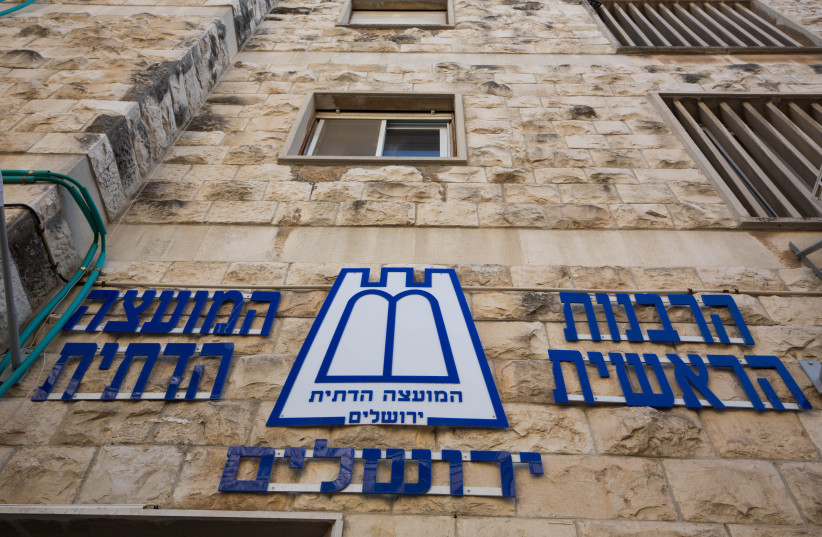Kashrut ‘revolution’ legislation passes into law
The legislation abolishes the monopoly of the Chief Rabbinate over kashrut supervision.

Kashrut certificate in Jerusalem, July 21, 2021.
Dramatic reforms to the provision of kashrut services have passed into law after the Budget Arrangements Law was passed in the Knesset on Thursday.
The
legislation will likely have a historic impact on the provision of
kashrut supervision, and influence further changes to other religious
services in the future.
The legislation, advanced by Religious Services Minister Matan Kahana, will abolish the monopoly of the Chief Rabbinate
over kashrut supervision and open the market to competition by allowing
independent kashrut authorities to legally provide supervision
services.
The
kashrut services provided by the Chief Rabbinate and its local branches
has for years suffered from numerous forms of corruption and has been
castigated by state bodies and NGOs for failing to provide an adequate
service.
Under the
new law, the Chief Rabbinate will establish two levels of kashrut
standards, basic and stringent, and a body within the Rabbinate will be
tasked with ensuring the independent authorities comply with those
standards.

THE BUILDING of the Chief Rabbinate of Israel in Jerusalem
To
ensure the establishment of independent kashrut authorities will not be
thwarted by the Chief Rabbinate through overly stringent standards, a
panel of three rabbis with specific qualifications will be able to, if
they so wish, establish a separate set of standards.
This
provision in particular will mean that the Rabbinate will no longer
have exclusive control over the provision of kashrut in the country.
One
other major reform in the law allows the independent authorities to
give kashrut authorization for food products from abroad, something that
could reduce costs for imported food.
The law will go into effect on January 1, 2023.
But
on January 1, 2022, the current geographical districts in which only
local rabbinate branches can operate will be abolished, meaning a chief
municipal or regional rabbi anywhere in Israel could provide supervision
anywhere else.
This
is a boon for the kashrut service run by the moderate religious-Zionist
Tzohar organization, which already operates a kashrut supervision
service, through loopholes from earlier laws.
Although
until now, Tzohar and any other independent kashrut authority could not
legally issue kashrut certificates for restaurants and food businesses
stating that they are kosher in writing; the abolition of the geographic
districts will mean that such certificates will be legal.
This step will immediately boost competition in kashrut supervision before the full law takes effect.



No comments:
Post a Comment